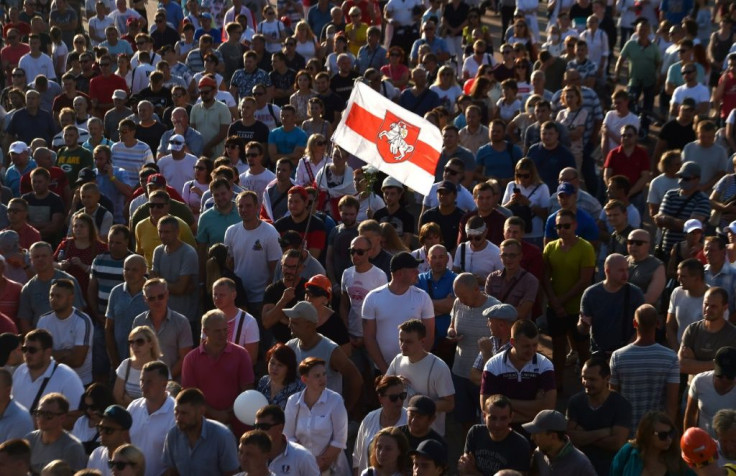UN Security Council Discusses Disputed Belarus Vote, Protests

The United Nations Security Council held a discussion on Belarus Tuesday in which members were urged to do everything they can to stop the crisis from escalating.
Estonia and the United States requested the dialogue, which was held during a closed-door meeting on Yemen, under a portion of the session reserved for discussion of "any other business."
Estonian Foreign Minister Urmas Reinsalu told the 15-member Council that it "has a key responsibility in the prevention of violent conflict and mass atrocities," according to a statement.
"Using preventive diplomacy at all levels is of utmost importance for avoiding the escalation into violent conflict," he said.
"Today's meeting sends a signal that we are closely following the events in Belarus and make sure the secretary-general receives the support necessary to use his preventive diplomacy toolbox where necessary.
"This Council shall remain engaged with the situation and receive update of events if the developments so require," he added.
Belarus is gripped by mass protests against disputed elections earlier this month in which Belarusian strongman Alexander Lukashenko claimed victory and a sixth term.
Belarus's security forces brutally dispersed the massive street demonstrations that erupted following the August 9 vote which the opposition said was rigged to ensure Lukashenko's victory.
Reinsalu told the UNSC that the election results "were faked" and described the situation as "highly vulnerable."
China, however, said the situation in Belarus was not a matter for the Security Council.
Beijing's permanent representative to the UN, Zhang Jun, "emphasized, what's happening in Belarus is the country's internal affair, and does not pose any threat to regional or international peace and security," according to a Chinese statement.
Lukashenko's closest rival Svetlana Tikhanovskaya fled to neighboring Lithuanian after declaring victory in the vote and announced the creation of the Coordination Council to ensure the transfer of power.
Lukashenko warned that the authorities would take "adequate measures" against opposition figures who participated in the council, saying that any response would be taken within the limits of the law.
Yet the authoritarian leader has come under fire from EU governments and rights groups for arresting nearly 7,000 demonstrators, with many detainees complaining of inhumane treatment and torture in detention centers.
© Copyright AFP {{Year}}. All rights reserved.





















